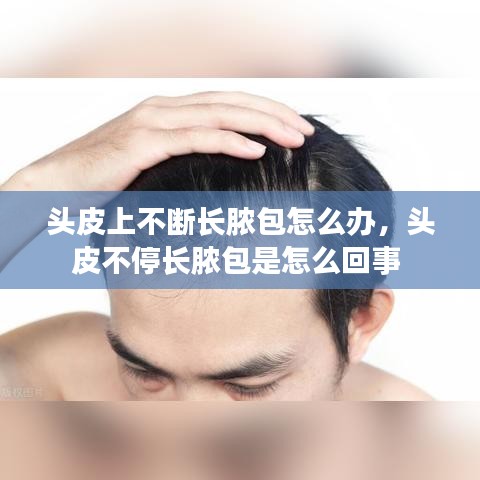<!DOCTYPE html>
<html lang="en">
<head>
<meta charset="UTF-8">
<meta name="viewport" content="width=device-width, initial-scale=1.0">
<title>Head Scalp Pimples: What to Do</title>
</head>
<body>
<h1>Head Scalp Pimples: What to Do</h1>
<h2>Understanding Scalp Pimples</h2>
<p>
Scalp pimples, also known as scalp acne or scalp pustules, can be quite distressing. These are inflamed bumps that can appear on the scalp, often resembling whiteheads or blackheads. While they can be unsightly, it's important to understand that scalp pimples are not uncommon and can be managed effectively.
</p>
<h2>Causes of Scalp Pimples</h2>
<p>
Several factors can contribute to the development of scalp pimples. These include:
<ul>
<li>Seborrheic dermatitis: This is a common skin condition that affects the scalp, leading to redness, flaking, and sometimes pimples.</li>
<li>Hormonal changes: Fluctuations in hormones, such as those during puberty, menstruation, or pregnancy, can trigger acne.</li>
<li>Stress: Stress can affect the body's hormonal balance, which can lead to acne.</li>
<li>Overuse of hair products: Products like gels, mousses, and oils can clog pores and lead to breakouts.</li>
<li>Improper hair care: Not washing hair regularly or using harsh shampoos can irritate the scalp and lead to pimples.</li>
</ul>
</p>
<h2>Diagnosis and Treatment</h2>
<p>
If you notice persistent scalp pimples, it's important to consult a dermatologist or a healthcare professional. They can provide a proper diagnosis and recommend an appropriate treatment plan. Here are some common treatment options:
</p>
<h3>Topical Treatments</h3>
<p>
Topical treatments are often the first line of defense against scalp pimples. These may include:
<ul>
<li>Medicated shampoos: Shampoos containing ingredients like benzoyl peroxide, salicylic acid, or ketoconazole can help reduce inflammation and kill bacteria.</li>
<li>Topical retinoids: These can help to unclog pores and reduce inflammation.</li>
<li>Antibiotics: In some cases, a dermatologist may prescribe topical or oral antibiotics to treat bacterial infections.</li>
</ul>
</p>
<h3>Oral Medications</h3>
<p>
For more severe cases or when topical treatments are not effective, oral medications may be prescribed. These can include:
<ul>
<li>Oral retinoids: Similar to topical retinoids, these can help unclog pores and reduce inflammation.</li>
<li>Oral antibiotics: To combat more stubborn bacterial infections.</li>
<li>Hormonal treatments: In some cases, hormonal imbalances may be the cause, and hormone therapy may be prescribed.</li>
</ul>
</p>
<h3>Healthy Hair Care Routine</h3>
<p>
Maintaining a healthy hair care routine is crucial in preventing and managing scalp pimples. This includes:
<ul>
<li>Washing your hair regularly with a gentle, medicated shampoo.</li>
<li>Avoiding harsh hair products and opting for those that are sulfate-free and non-comedogenic.</li>
<li>Not touching your scalp with dirty hands, as this can introduce bacteria.</li>
<li>Using a wide-tooth comb to avoid pulling or irritating the scalp.</li>
</ul>
</p>
<h2>Preventive Measures</h2>
<p>
Preventing scalp pimples involves a combination of lifestyle changes and proper hair care. Here are some tips:
<ul>
<li>Keep your scalp clean and dry to prevent the growth of bacteria.</li>
<li>Change your pillowcases regularly to avoid the accumulation of oils and dirt.</li>
<li>Avoid hairstyles that pull on the scalp, as this can irritate the skin.</li>
<li>Stay hydrated and eat a balanced diet rich in vitamins and minerals to support healthy skin.</li>
</ul>
</p>
<h2>Conclusion</h2>
<p>
Scalp pimples can be a source of frustration, but with proper care and treatment, they can be managed effectively.转载请注明来自天津澳朗口腔牙科,本文标题:《头皮上不断长脓包怎么办,头皮不停长脓包是怎么回事 》
百度分享代码,如果开启HTTPS请参考李洋个人博客














 蜀ICP备2022005971号-1
蜀ICP备2022005971号-1
还没有评论,来说两句吧...